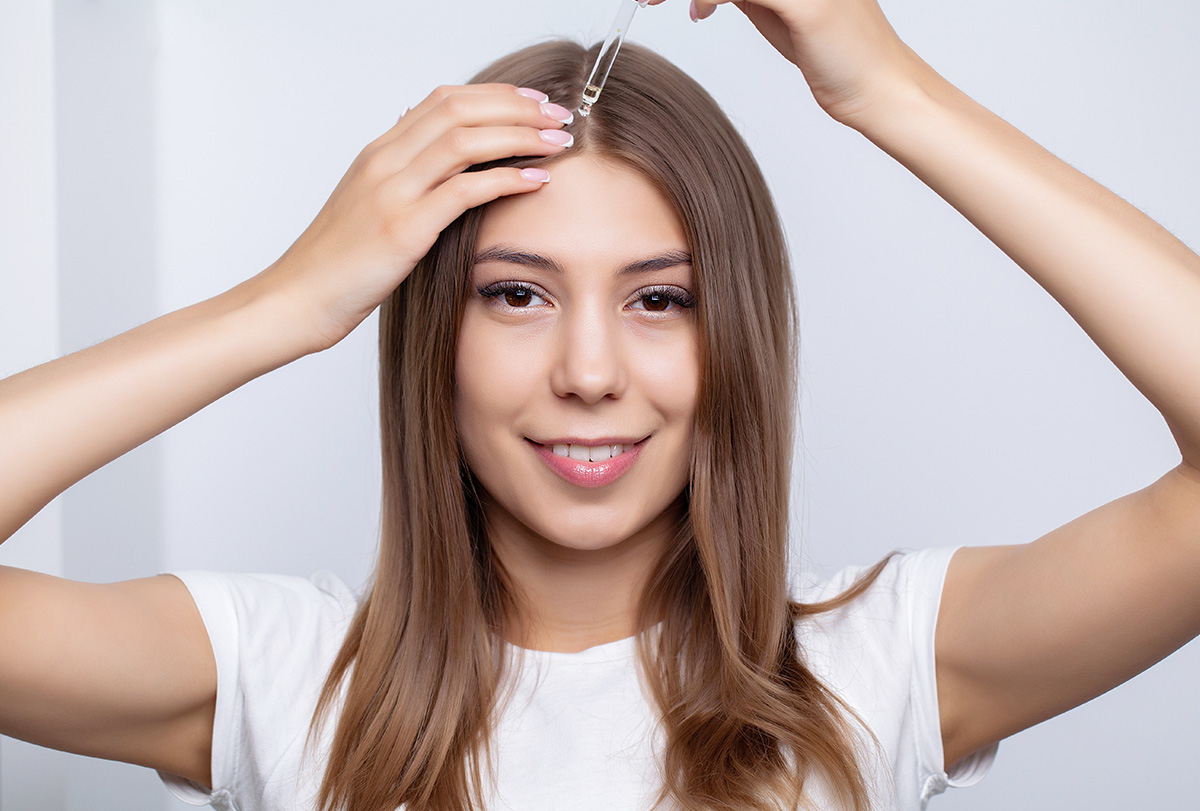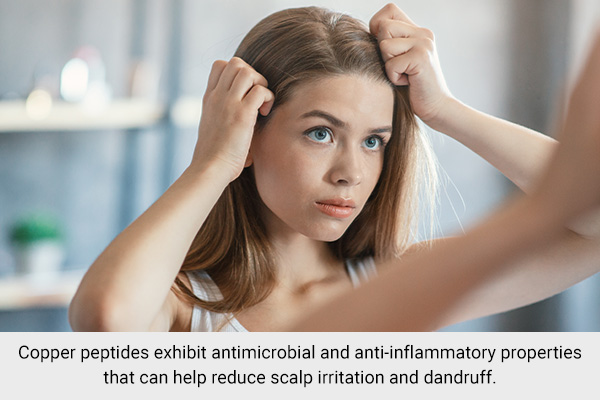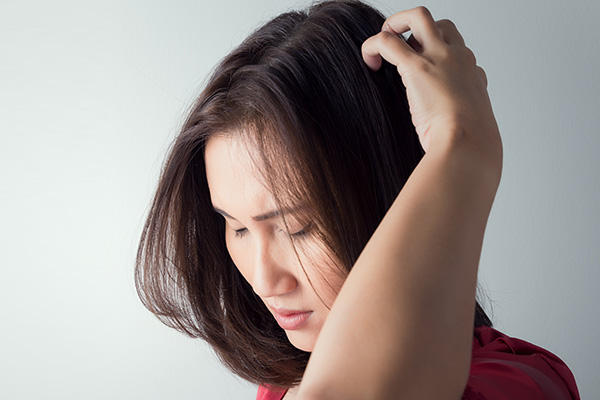In this article:
If you’re one of the many people who’s been struggling with hair loss or are just starting to lose hair, copper peptides may be your answer.

Does copper peptide work for hair growth? The short answer is yes, but it’s important to understand how it works and what the best way to use it is.
This natural compound has been shown to promote hair growth and prevent hair loss in a number of studies, and many people swear by it.
This article will go into detail on what copper peptides are, how they can benefit your hair health, and how to maximize their effectiveness.
What Are Copper Peptides?
Copper peptides are a type of protein that can be found in many beauty products. They are often used to help with various skin concerns, such as wrinkles, fine lines, and dark spots.
Copper peptides are small molecules that are suggested to promote hair growth. They are found in a variety of over-the-counter products, including shampoos, conditioners, and serums.
While there is some evidence that copper peptides may promote hair growth, their effectiveness is still not fully understood. In addition, it is not clear how well they are absorbed by the skin or if they can reach the hair follicles where they would be needed to work. (1)
If you’re considering using a product with copper peptides for hair loss, it’s important to talk to your doctor first. There is no evidence that these products are safe or effective for everyone, and they may cause side effects in some people.
How Are Copper Peptides Useful in Hair Growth?
Copper peptides are believed to be useful for hair growth because they can stimulate the follicles and promote the production of collagen. Collagen is a protein that is essential for healthy skin and hair.
Copper peptides can also help to increase blood flow to the scalp, which can nourish the follicles and promote growth. (2)
The tripeptide copper complex has been proven in a 2016 research study to have impacts on hair development and may be a potential complementary treatment for male-pattern hair loss. Its use resulted in a 6-month rise in hair count with essentially no side effects. (3)
The human copper-binding peptide GHK-Cu (glycyl-L-histidyl-L-lysine) is a tiny, naturally occurring tripeptide found in human plasma that may also be released from tissues in case of an injury, according to a recent research published in 2018.
Since its discovery in 1973, GHK-Cu has made a name for itself as a potent regenerative and protective element that is now frequently found in skin care and hair care products.
Due to its antioxidant, anti-inflammatory, and anti-aging properties, GHK-Cu can increase hair growth and thickness, increase hair follicle size, and prevent the signs of aging. (4)
What Effects Do Copper Peptides Have on Scalp Health?

Copper peptides are suggested to have a variety of benefits for scalp health. One study showed that they can help to promote hair growth in people with alopecia, and another found that they can improve the appearance of damaged hair.
Copper peptides also have antimicrobial and anti-inflammatory properties, which means they may help to reduce scalp irritation and dandruff. (4)(5)
How to Use Copper Peptides
There are many ways that you can use copper peptides to improve hair growth.
One way is to massage your scalp with a product that contains copper peptides. This will help to stimulate blood flow to the area and encourage hair growth.
You can also apply a copper peptide-containing product directly to your hair follicles. This can help to strengthen the follicles and promote hair growth. (2)
If you want to use copper peptides to augment hair growth, it is important to follow the directions on the product that you are using. You should also speak with a doctor or dermatologist if you have any questions or concerns about using copper peptides for hair growth.
How Soon Will I See Results When Using Copper Peptides?
There are a few different ways to use copper peptides for hair growth. You can apply them topically in the form of a serum or cream, or you can take them orally in supplement form.
Copper peptides have been shown to improve hair growth in several studies. In one study, copper peptides were applied topically to the scalp of men with androgenetic alopecia (male-pattern baldness) for 24 weeks. The results showed that copper peptides improved hair density and thickness in the treated group compared to the control group. (6)
A review also showed that dietary copper deficiency is linked to hair thinning and hair loss. (7) Thus, oral copper supplementation might have protective benefits.
So, the time it takes to see results after using copper peptides depends on the form you’re using and your response. Topical application may take several weeks to show results, while oral supplementation may take up to 12 weeks.
Side Effects of Using Copper Peptides

A few potential side effects of using any new hair product are:
- Scalp irritation
- Temporary staining of the skin or hair
- Increased sun sensitivity
Overall, however, copper peptides are considered safe to use and have very few reported side effects. If you do experience any of the above side effects, simply discontinue use and consult with your doctor.
Most-Asked Questions About Copper Peptides for Hair Growth
How do copper peptides stimulate hair growth?
Copper peptides are believed to improve hair growth by stimulating the production of collagen and elastin, which are essential for healthy skin and hair. They also promote blood circulation and help to repair damaged cells. (8)
What is the minimum concentration of copper peptides in a product?
If you’re using copper peptides topically, be sure to choose a product that contains at least 2% copper peptides. Apply the serum or cream once or twice daily to the scalp and massage it well. Leave it on for at least 30 minutes before washing it off.
It’s important to note that results from using copper peptides for hair growth may not be immediately apparent. It can take several weeks or even months to see visible changes.
Final Word
Copper peptides appear to be a promising option for hair growth. While more research is needed to confirm the efficacy of this treatment, the available evidence suggests that they may be helpful in stimulating new hair growth and preventing further hair loss.
If you’re considering using copper peptides for hair growth, be sure to talk to your doctor first to discuss whether this treatment is right for you.
- Was this article helpful?
- YES, THANKS!NOT REALLY


